Among all the two-episode debuts of the summer season, Shoukoku no Altair has probably come as close as any to delivering as expected – no more and no less. I’m still not staggered by this show, but I am pleased with it – even if I’m starting to worry a bit about how the sizeable majority of the anime audience that aren’t history otaku are going to respond to it. Shoukoku clearly hews closer to the wind of historical literalism than the more fanciful Arslan Senki, and without the added lure of fantasy and magic at its disposal.
One thing is for sure – if one is well-versed in Eurasian history, watching this series makes certain conclusions unavoidable. For starters it’s obvious that modern-day aspiring conqueror-fascists like Putin are by no means ignorant of history themselves, as the plan the “Balt-Rhein” empire launches to annex the “Turkiye” state of Hisar is pretty much the boilerplate Putin strategy (not that he has any monopoly on it). It’s also obvious that the winning side writes history, a truism if there ever was one, and historical events like the ones we’re seeing portrayed in this arc are based on are taught differently depending upon in what part of the world one attends school.
Ultimately historical fantasies like Shoukoku no Altair, no matter their roots, are stories – and they’ll only succeed as far as their characters can take them. Mahmut’s place in this story is an interesting one. He’s a young man who aspired to warfare as a result of the trauma that he suffered as a child (more specifically, the anguish of being helpless to prevent it). Yet as he grew and learned, he realized that there were already plenty of powerful people whose futures and fortunes were staked on war – what his country and his world needed was someone willing to work a little harder for the alternative. It’s to his credit that he chose to take the harder road rather than the easy one.
The border state of Hisar, the setting for this arc, is being governed by the Vali, Ibrahim (Satou Takuya), Mahmut’s sole friend from military academy (we met him briefly last week). Its populace is of the Araba tribe, an ethnic minority in Turkiye (stop me if you’ve heard this before). As such, it’s a perfect staging ground for a plot by Louis to foment a war for independence, giving him the pretense to march a (conveniently positioned) army of Empire soldiers in to “protect” the Araba people from repression by Turkiye. Zağanos beats him to the punch though, arriving in Hisar with his own (albeit much smaller) army before the Balt-Rhein troops can reach the city gates from the opposite direction.
Mahmut is the wildcard in all this, springing into action due to his friendship with Ibrahim. Both Ibrahim and Mahmut can be said to be in the wrong here – they’ve both acted out of personal feelings over the strategic needs of their people. In Ibrahim’s case it’s playing along with the plot because a large number of Hisar families are being held hostage – in Mahmut’s, it’s trying to subvert Zağanos’ response in order to save his friend. Ibrahim’s moment of truth comes when he realizes that for the sake of Hisar, the smart thing to do would be to throw open the gates and allow the Turkiye forces to enter the city – yet he decides not to, fearful for those held captive in a tent soaked with oil.
Is all this a bit oversimplified in order to fit into 22 minutes? Sure it is – but is that really a valid criticism? The broader parameters of the story are spot-on from a historical perspective, and the existential crisis for Ibrahim and especially Mahmut are effective from a narrative one. Certainly, we’re at the phase of the story where Mahmut’s continuing education is the primary goal – he’s not yet ready to become the major player in regional affairs that the story demands he become, and he’ll only get there by seeing first-hand where the rubber meets the road in terms of idealism and realpolitik. That’s a winning dramatic formula for me, and Shoukoku no Altair is executing it very well.


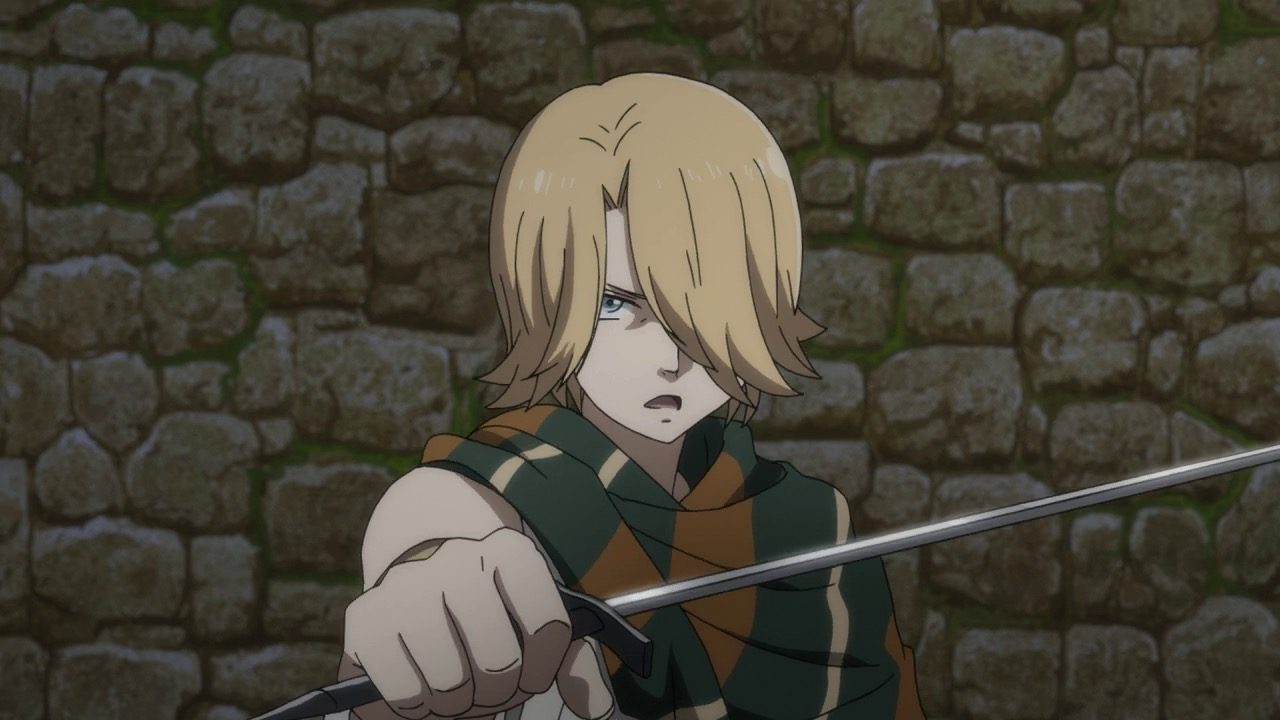

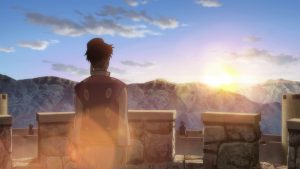
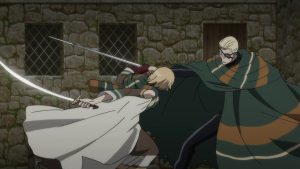


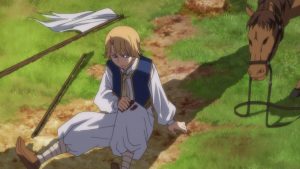


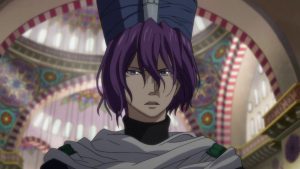
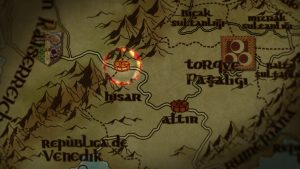


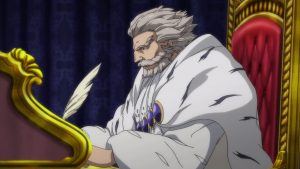

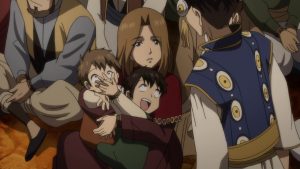
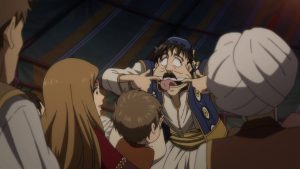

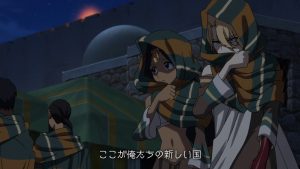

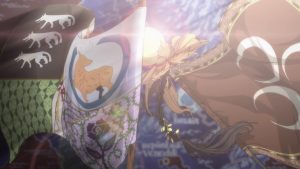
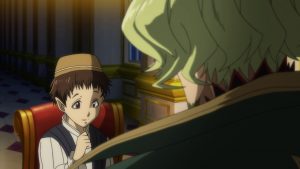

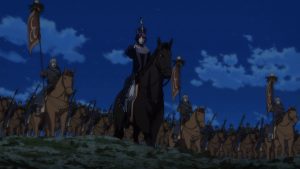
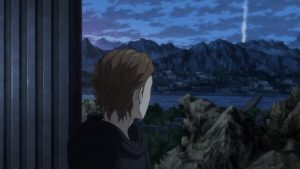
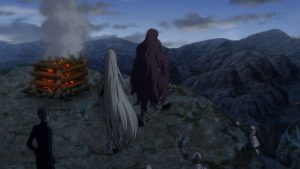
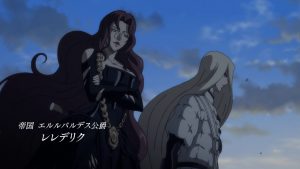

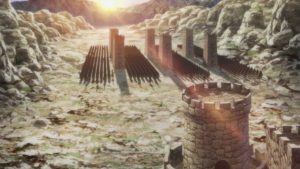

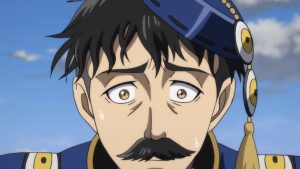

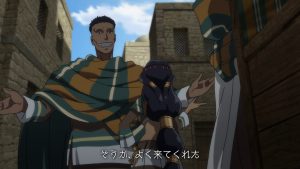

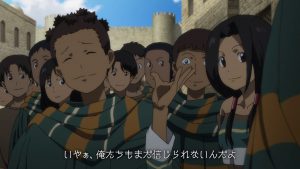
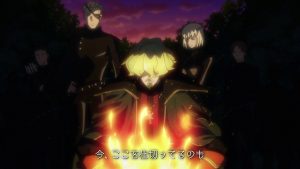
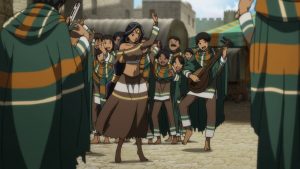


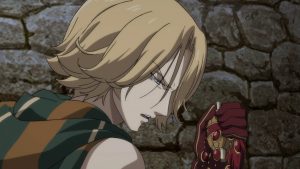
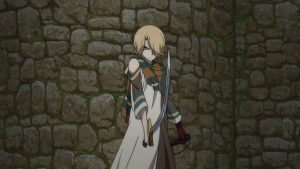
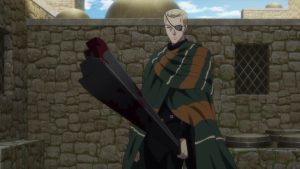
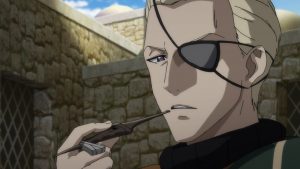
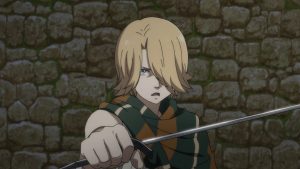
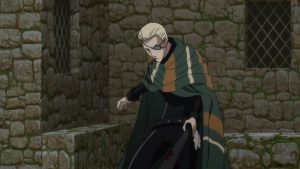
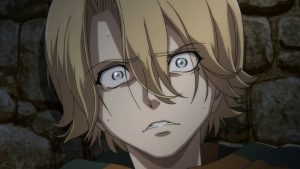
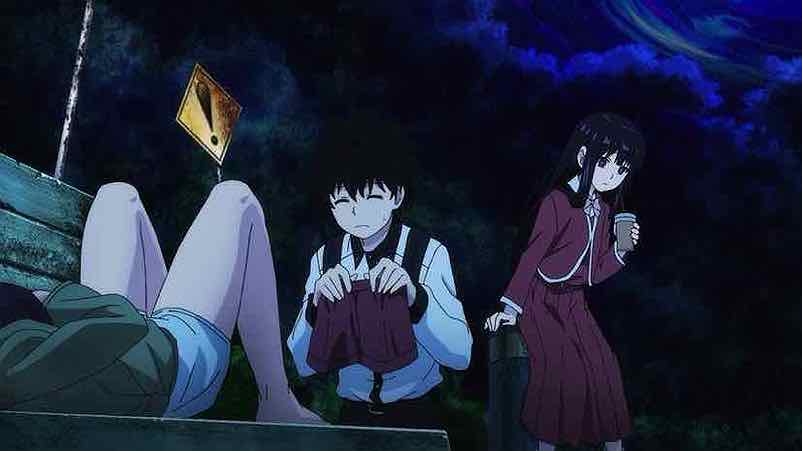

Mike
July 15, 2017 at 1:59 pmI thought this was pretty bad. About 70% of the dialogue was clumsy exposition or stating out loud what was happening on screen. Feels like maybe they are rushing through the intro stories to get to more epic stuff that is presumably later in the manga, but it’s just really bland and flat. Would be better to give these stories enough time to make them count, or skip them entirely. Hoping it gets better!
B
July 15, 2017 at 4:37 pmIt’s Balt-Rhein empire (バルトライン帝国) not rhein balt
HDOLYE
July 15, 2017 at 9:36 pmEven though the story was a bit rushed – and I admit I needed a slight rewind to really figure out what was happening (Thank God we are not in the VHS/ Beta era anymore)!! I also like the fact that even though Mahmut is a child prodigy and graduated at a tender young age he’s not painted as a know it all genius. We all know life is not textbooks and memorizing theories – and that he can make wrong and costly decisions at that. He’s only in his early teens. However, all plots need your typical “fall from grace” moment, and this is most likely it.